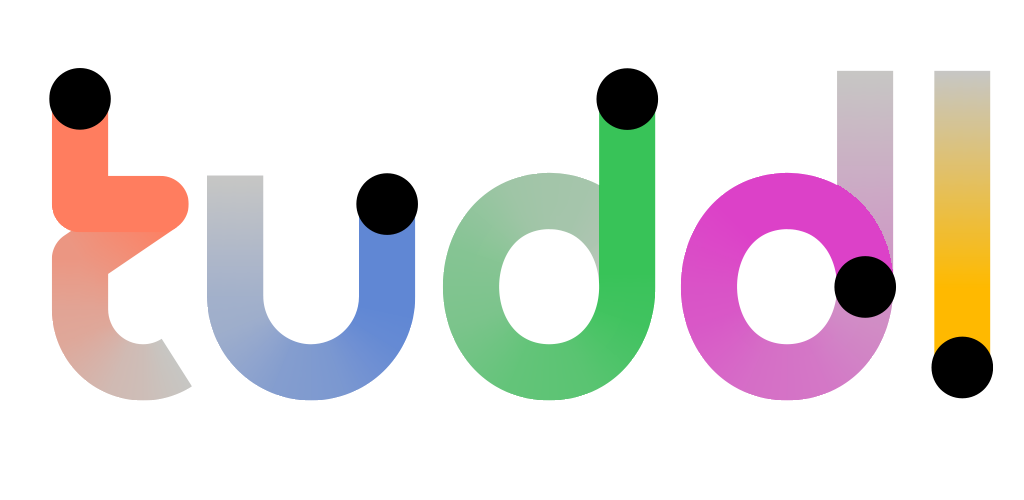Tuddl CXO, Chris Preston, shares this thoughts on managing a multi-generational workforce.
One of our team is a Post-Millennial/Gen-Z, and it’s a challenging experience working with them. Their work is incredible, their ideas amazing, and they are the most cheerful person to work with. But, their approach is so way off what I’m used to that it’s driving me crazy.
And it’s not his fault, or indeed mine. There’s a 30-year age gap – that’s three decades of evolved teaching, parenting and cultural shaping. We might as well be a different species. I get it now, when people tell me they struggle with younger employees. And I understand when younger employees tell me they find it really, really hard to work with the older generations. Managing a multi-generational workforce is a complex challenge!
What’s really interesting is how they interact with systems and processes. There’s far less structure, linear-thinking or prioritisation than I’m used to (which is saying something, I know). Things just ‘happen’ and it’s more like a lucky dip in terms of output. And it’s a properly brilliant output, that I don’t want to stifle by imposing my, let’s be frank, outdated approaches.
But here we all are, with our complex systems, highly defined processes and buttoned-up development approaches, merrily forcing them into a cookie-cutter shape that fits OUR needs. I do worry that the tough, fall-in-line, do your bit attitude of the Gen X leaders and managers is subconsciously bullying his emerging workforce into something that’s a) not needed and b) actively damaging the competitive edge that they offer.
I see a hand up at the back… Yes, absolutely, we need them to be productive and aligned to the rest of the workforce. But the ‘workforce’ at the moment is a scattered, messy, in some cases a broken thing that needs a whole heap of fixes to make it work.
But what are we trying to ‘fix’? Are we looking at the shattered remnants of a Ming vase, that needs artful work to glue back together to hide the cracks? Or are we staring at a handful of broken pottery shards that we can, with a bit of effort and ingenuity, craft into a new mosaic?
The Post-Millennials/Gen-Z’s are the vanguard of our new workforce. There will only be more of them… but not as many as there used to be in many markets. Scarce resource alert, but also compelling talent flag-up.
As always, it’s a massive area, with a myriad of factors, but if we are going to build a new ‘world of work’ then being attuned to the new workers will be critical. As a starter, there are three considerations to work through:
1. Information ‘cut-down’
This is not new, but it’s also not something that I’m seeing businesses practice very well. Our old-world approach was to fire-hose each other with information – text heavy presentations, long documents, lengthy presentations and meetings.
None of this fits with prevailing approaches. Short, quick, attention-grabbing has to be the way. In the past, we waded through pages of dullness because we had to. We really don’t have to any more. Question from the back there… Why should we pander to this? Well, why not? Do any of us enjoy overload, are we saying we can’t flex or that it’s actually better?
2. Fluid support and development
News just in, classrooms of today don’t have chalk boards, over-head projectors or terrifying maths teachers that throw things. Modern learning is VERY different, it’s more experiential, less formal, student tailored and easy to access. And it’s important that we mirror this in the support and development that we offer our workers (young and old – it’s good for all). Less formality around development, more in the moment support and rapid bursts of short-form ideas (see point one).
3. Focus on what’s important
‘Front ends’ have removed much of the need to understand the mechanics or data behind what we use and experience, and this has changed a lot of behaviour. Cars, software, technology – all put the mechanics behind a ‘wall’ of encasement or interface. So why are we still making so many decisions about data, and depth of detail? If there’s a direction of travel, let’s go with it. In our wider lives people are more comfortable working with outcomes and conclusions than ever before.
We don’t need to know it’s a 0.8% shift. As many weight-loss programmes will tell you, don’t look at the scales, feel how tight your belt is. For me, this translates into tools, like Tuddl, that take away the complexity and lets people get to the fundamentals, the shifts and trends that are more useful.
So. there’s my opening thoughts on the evolving multi-generational workforce. Be great to hear what you think. I’m also going to ask my Post-Millennial/Gen-Z team member to write their version of what they see. Now THAT will be interesting!
Need help empowering your teams? Connect with one of our Tuddl team members to schedule a demo and start your journey to a winning culture.



